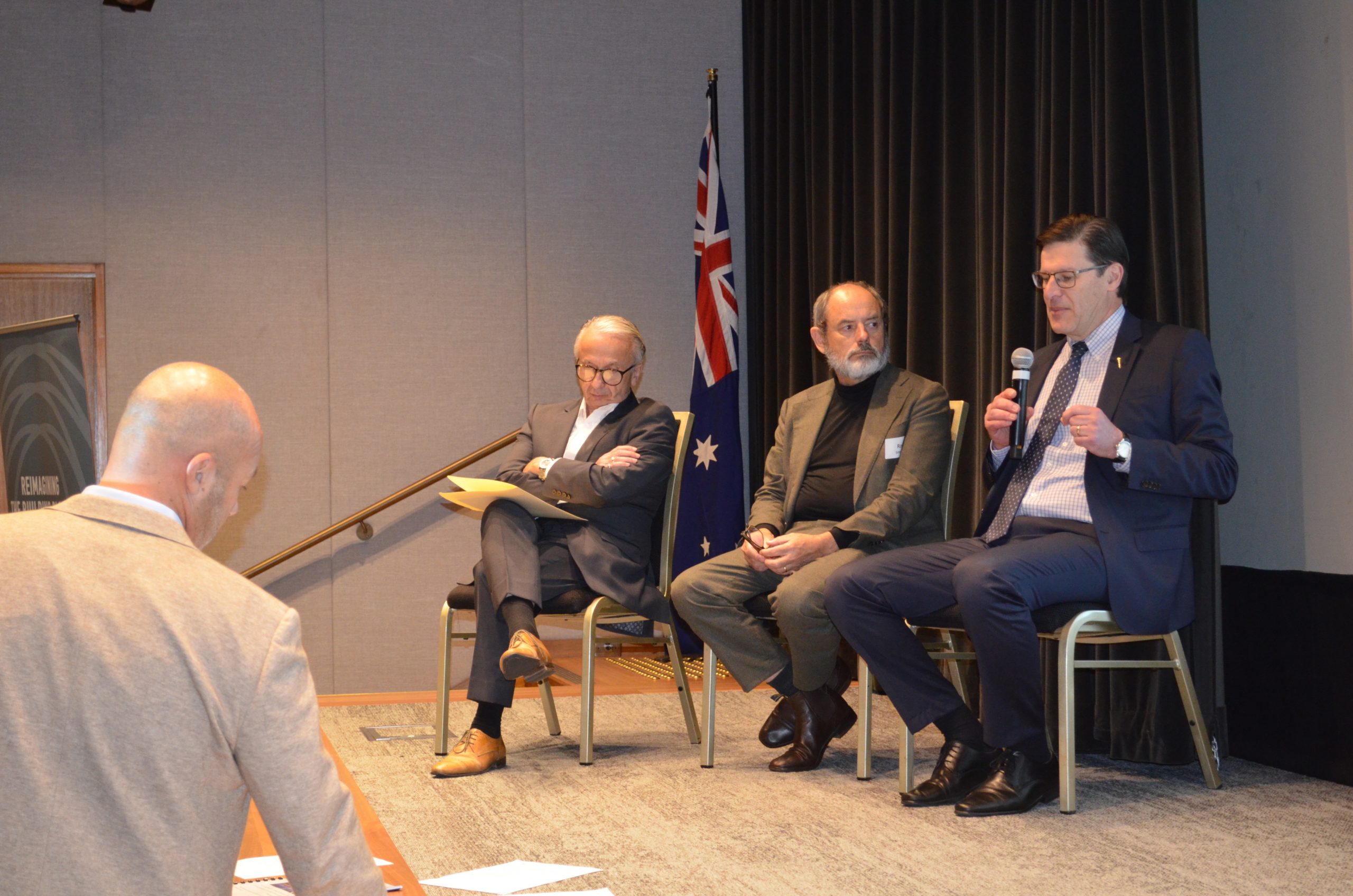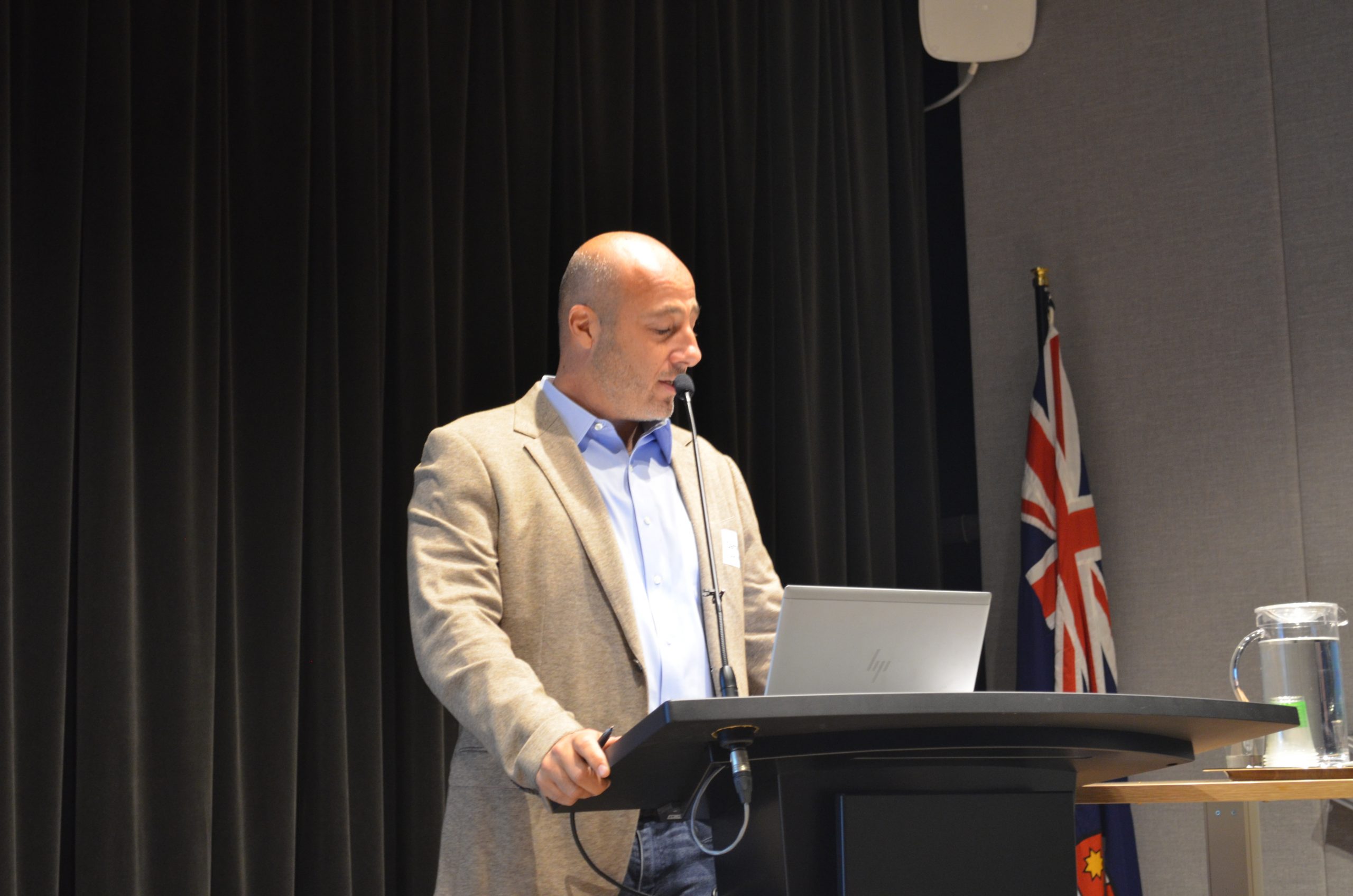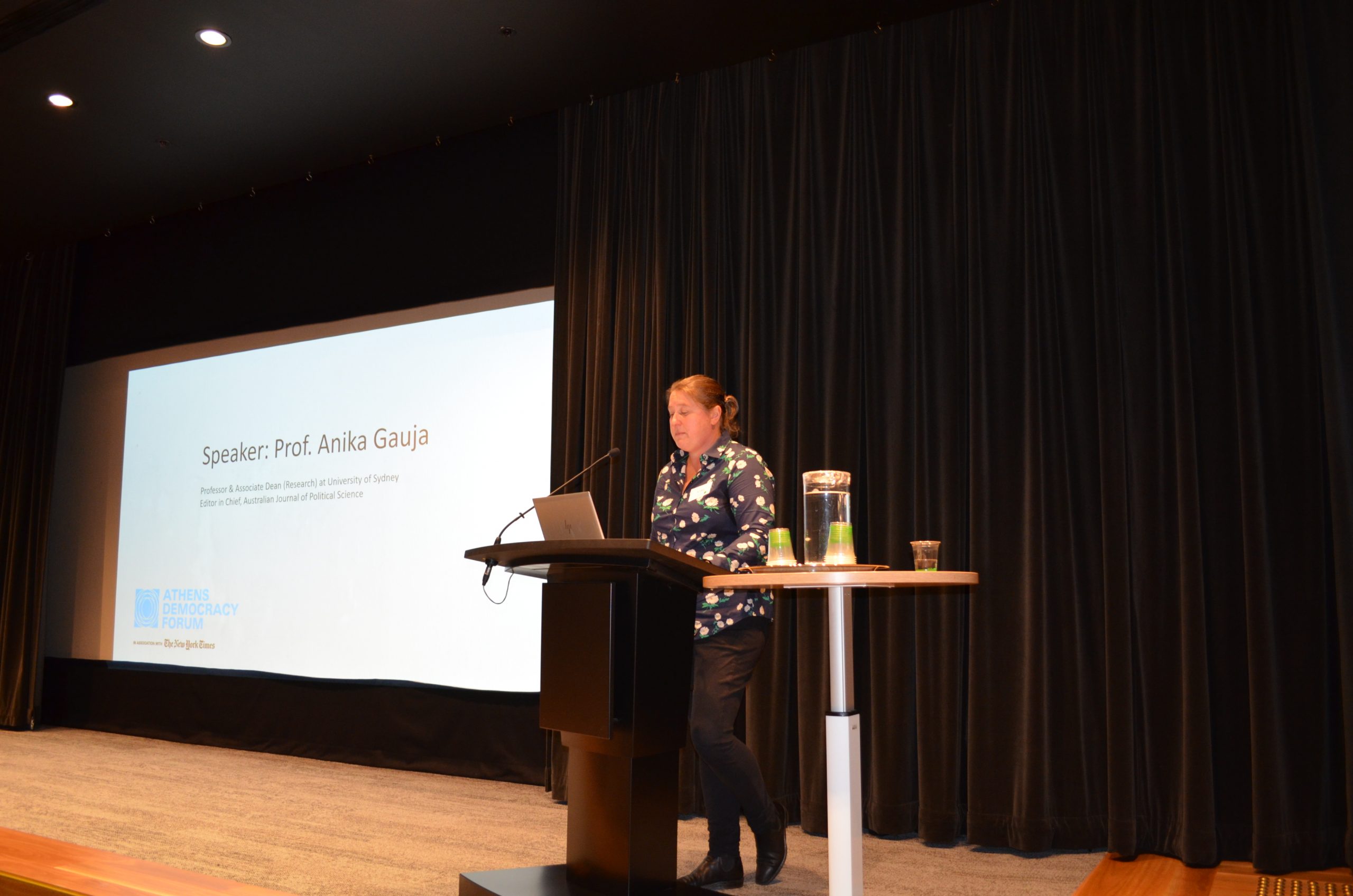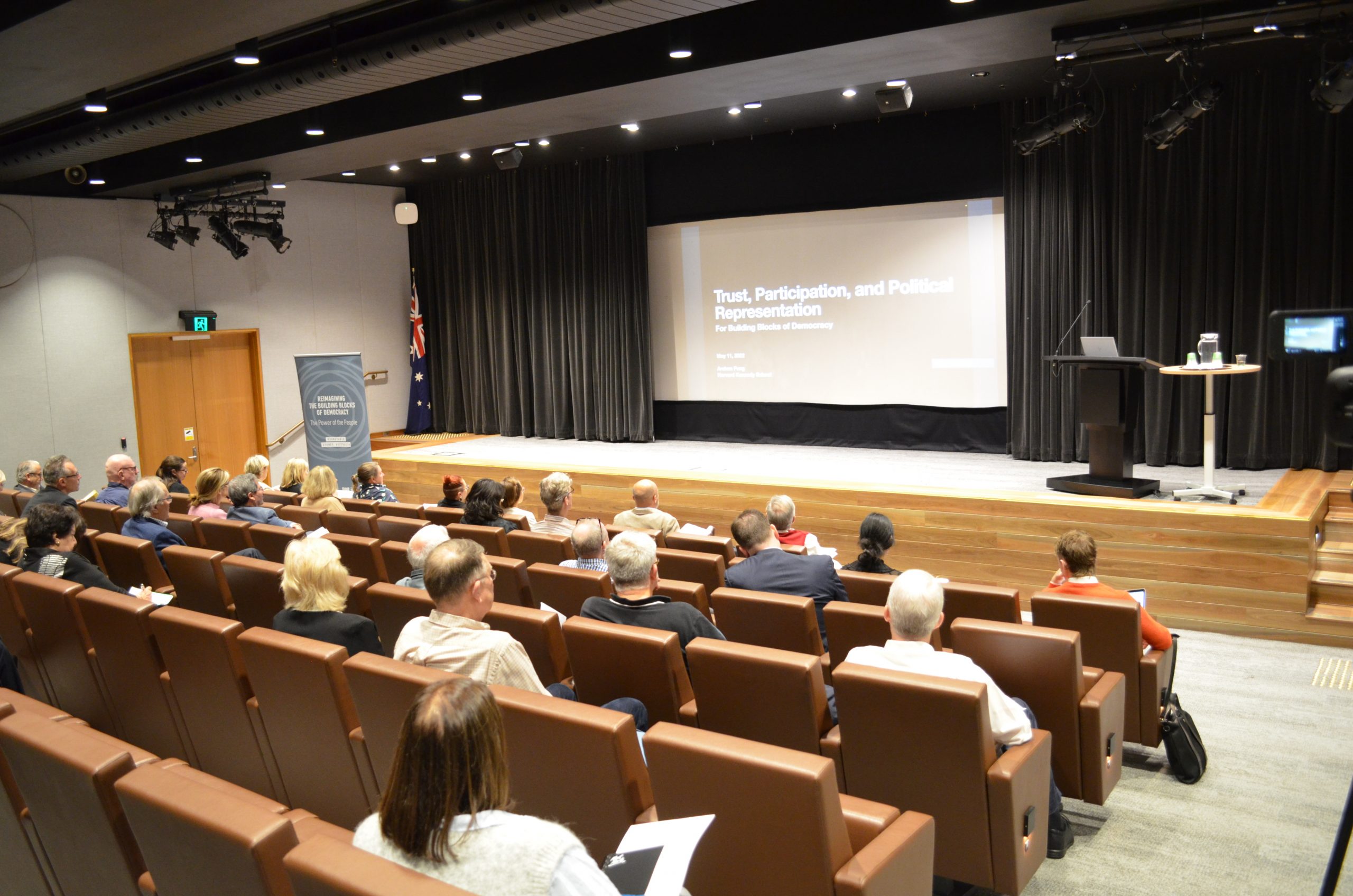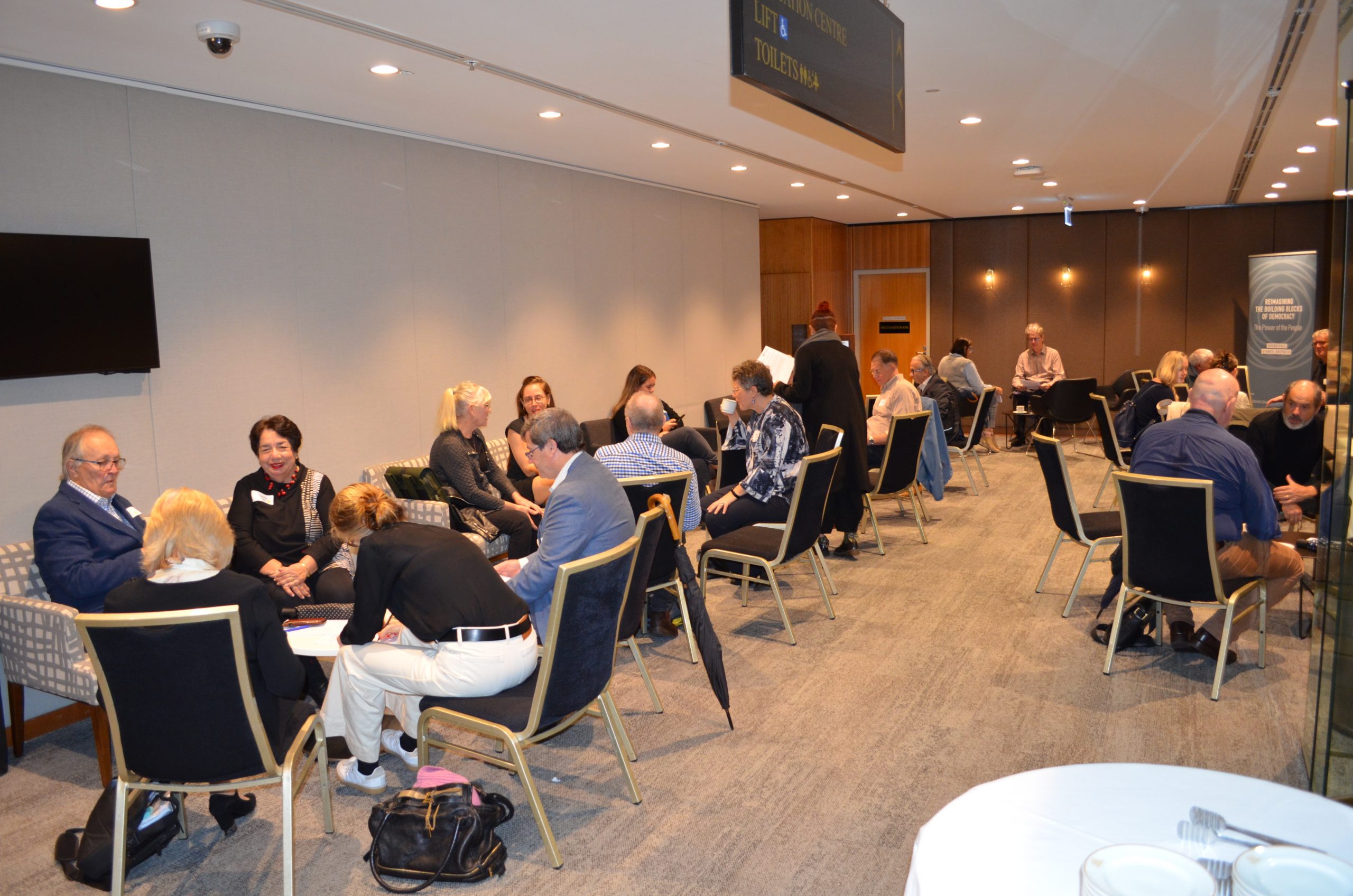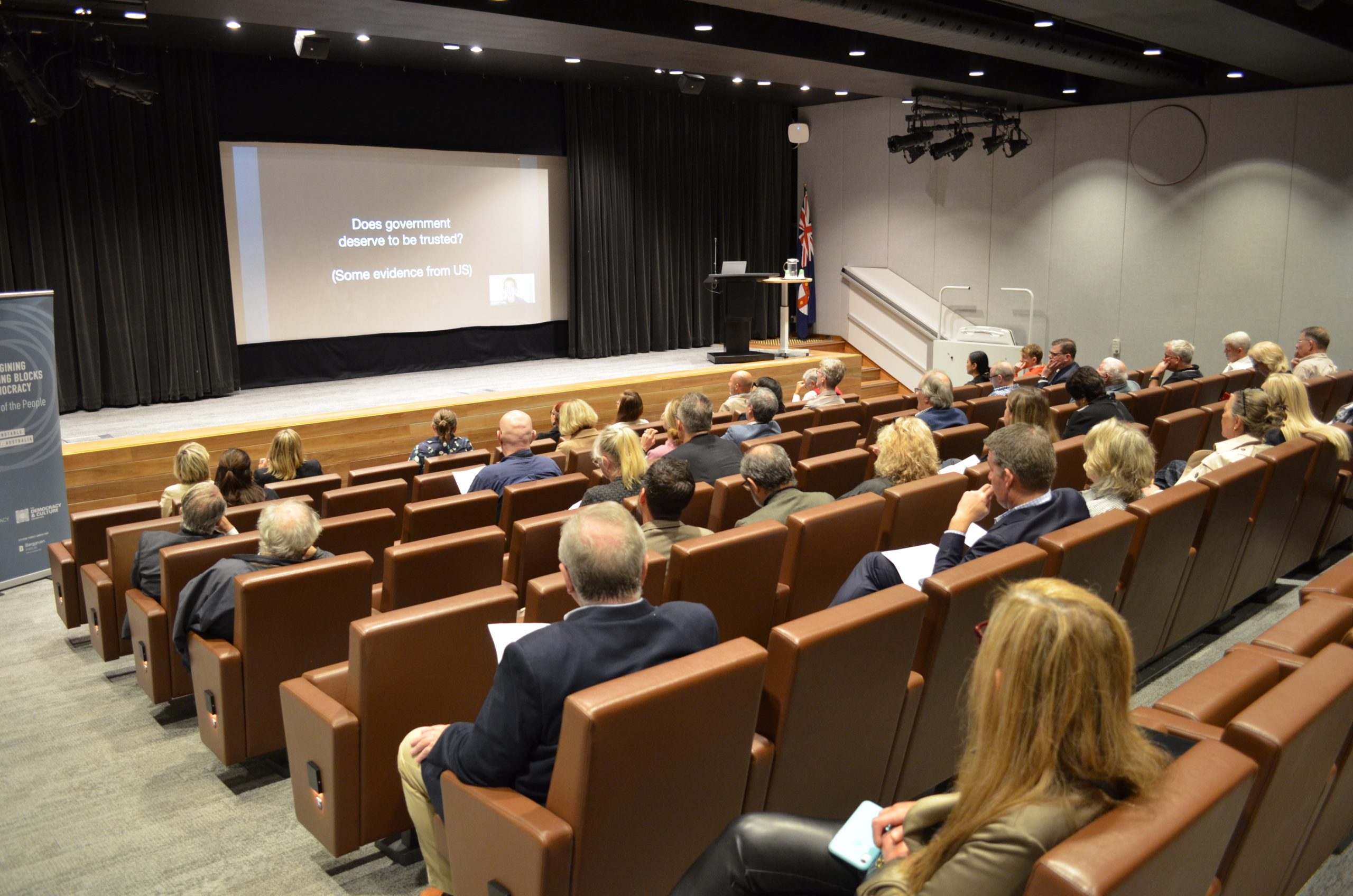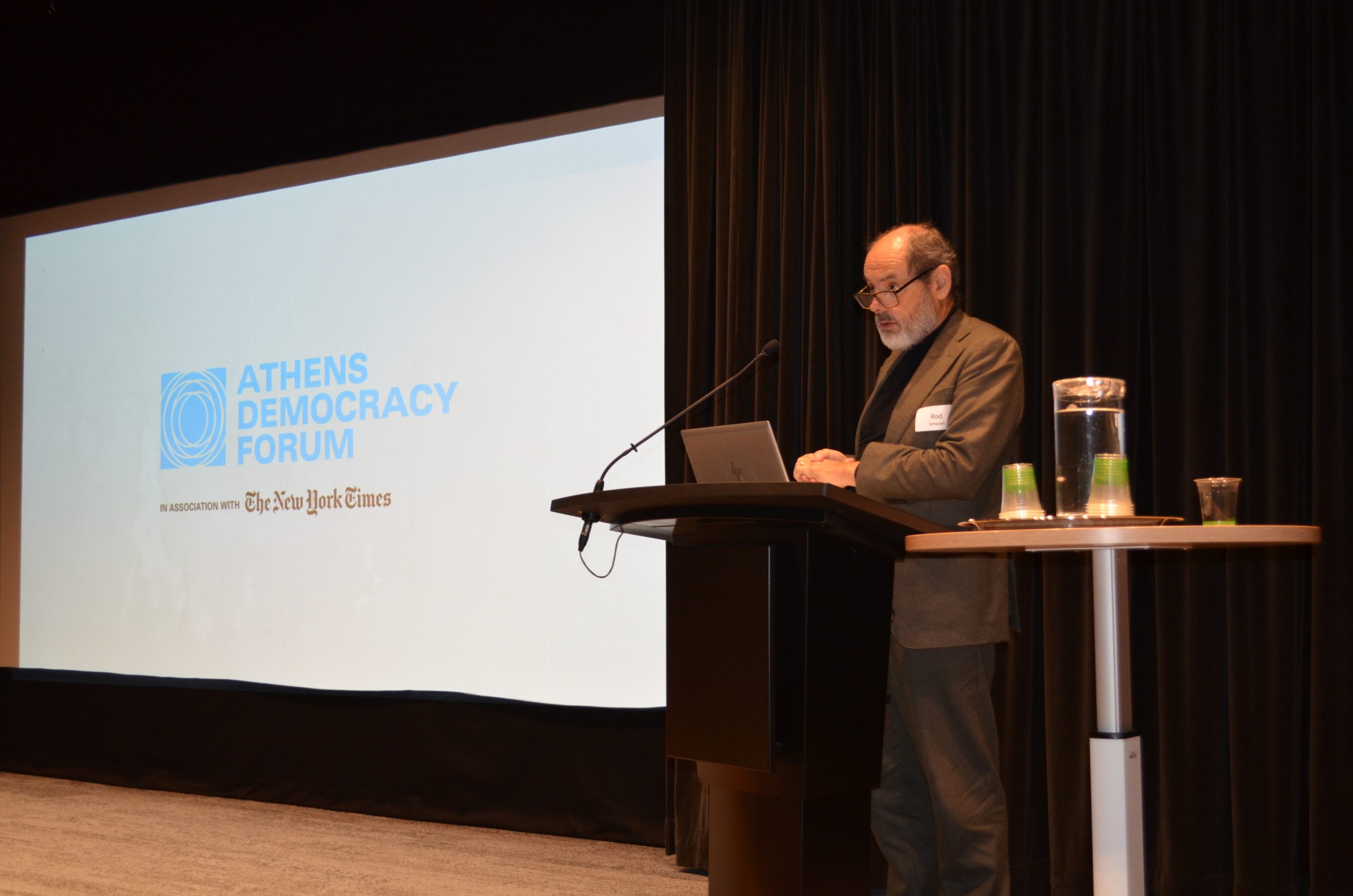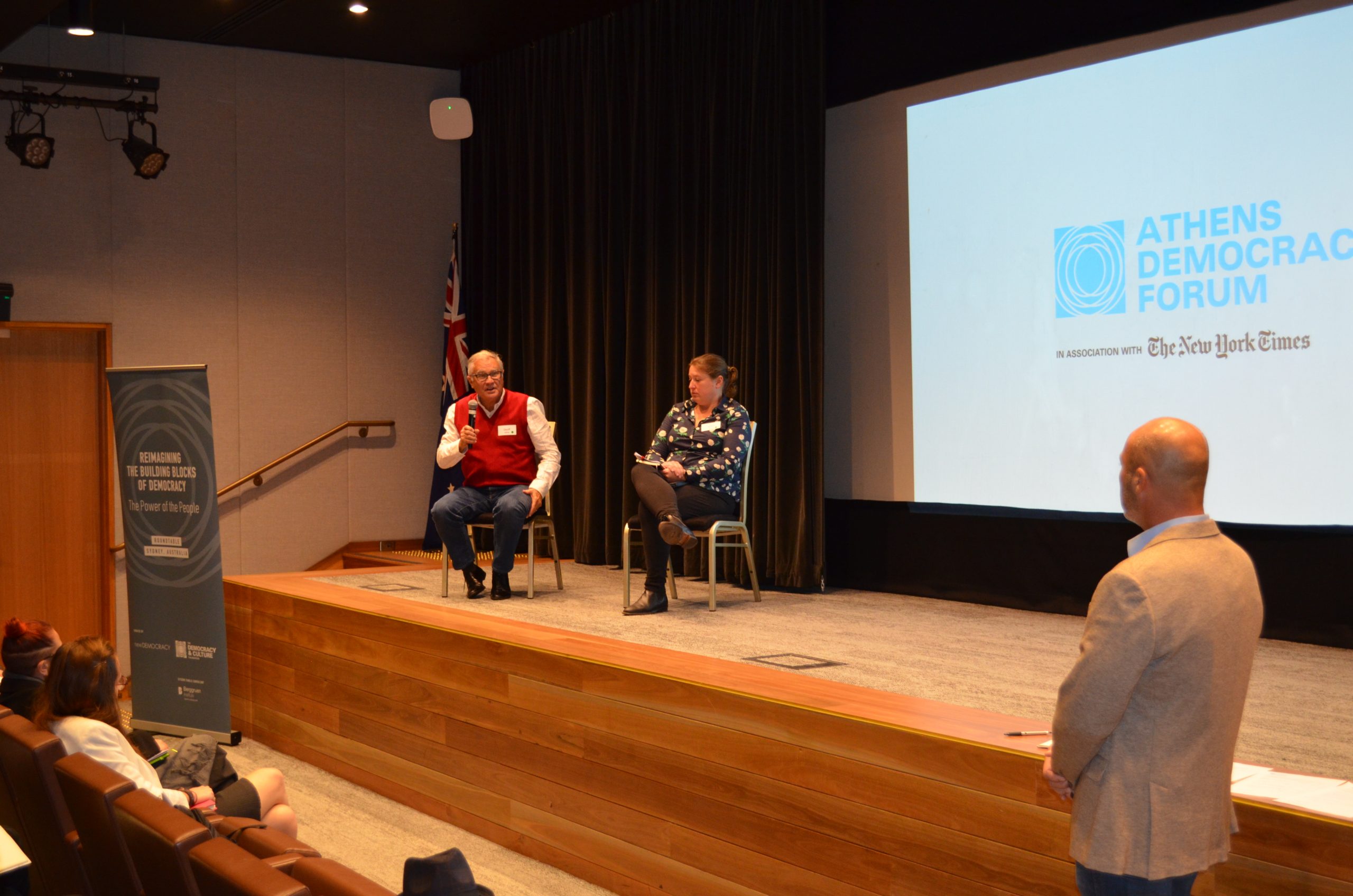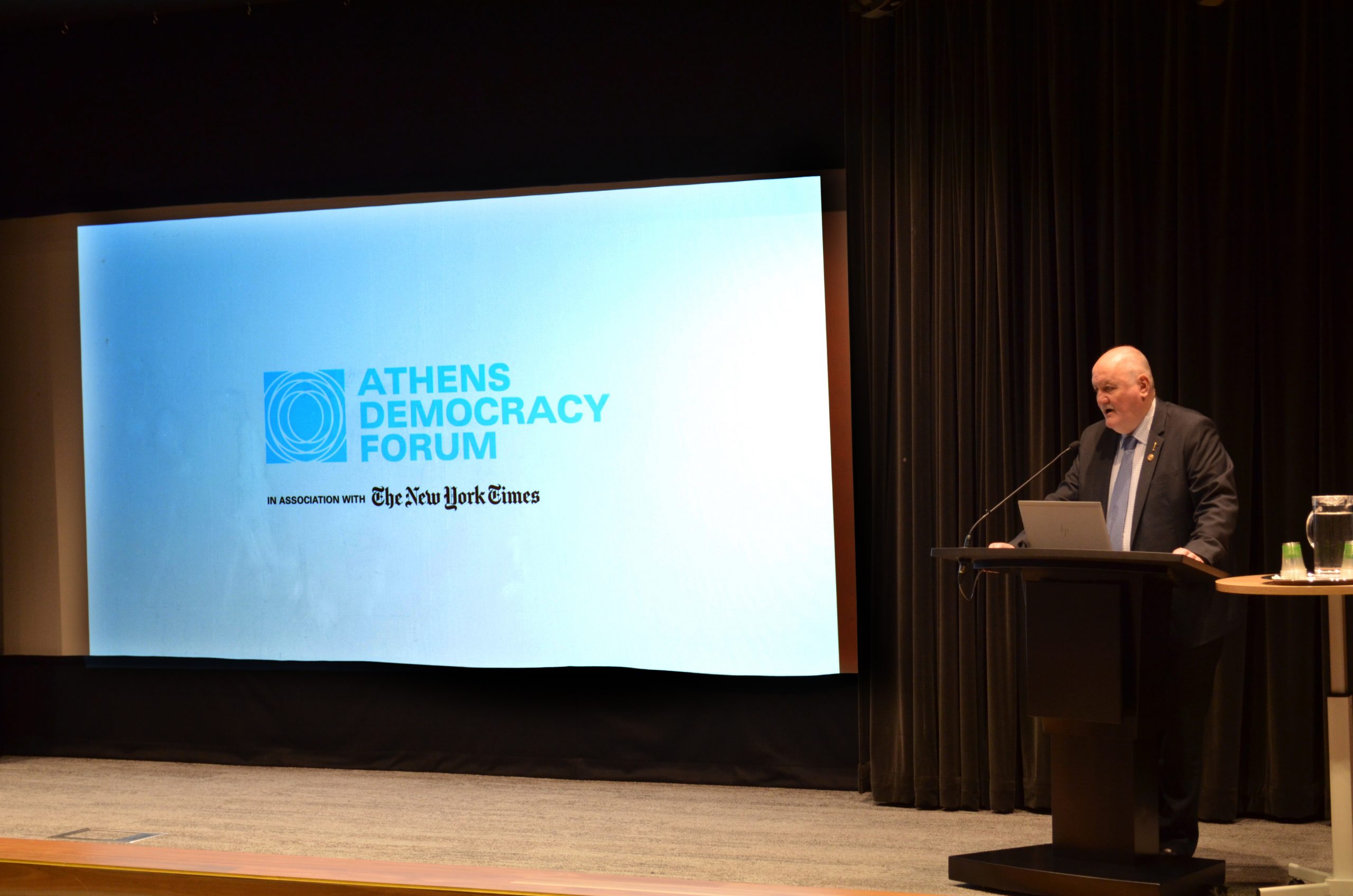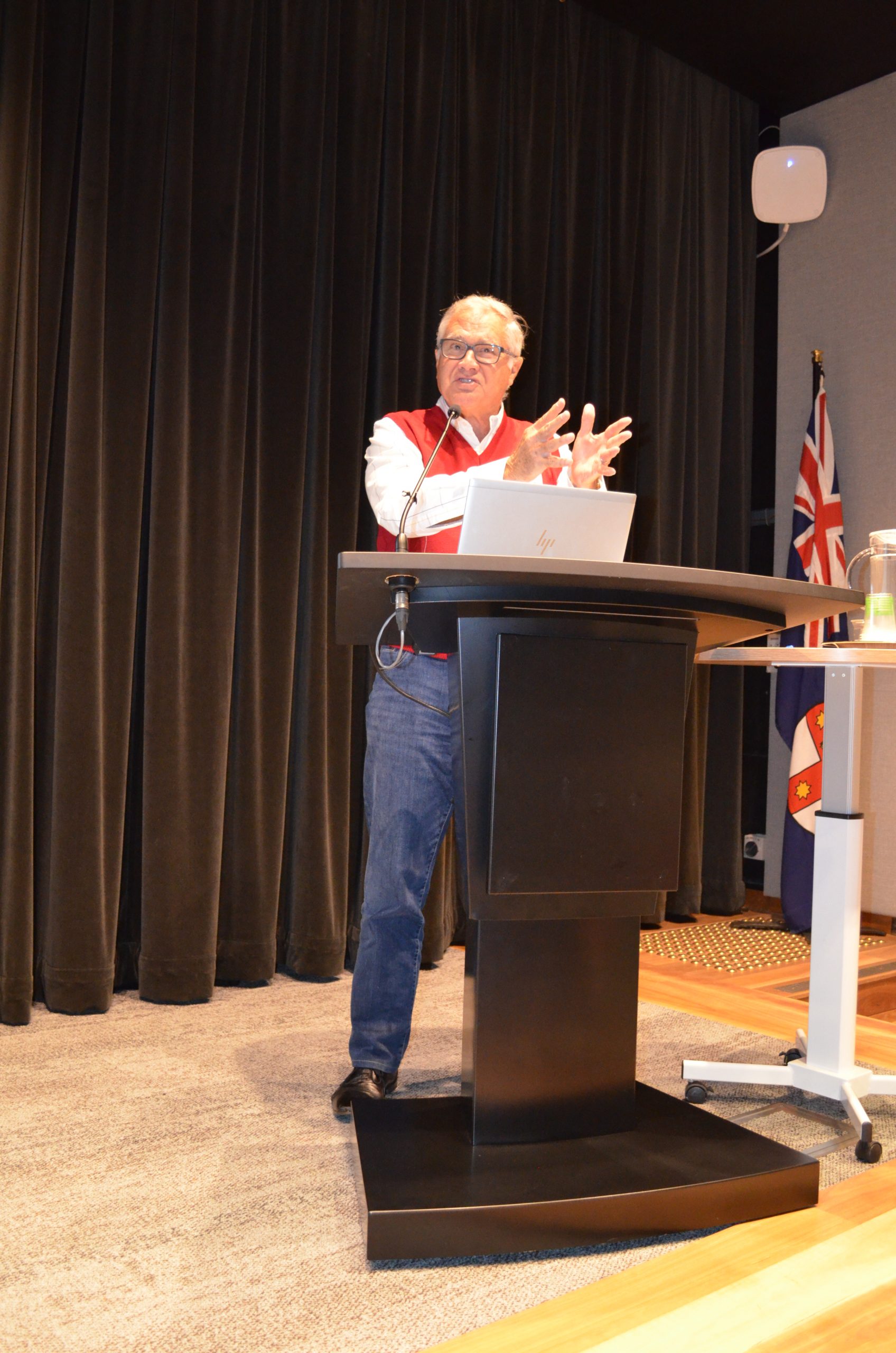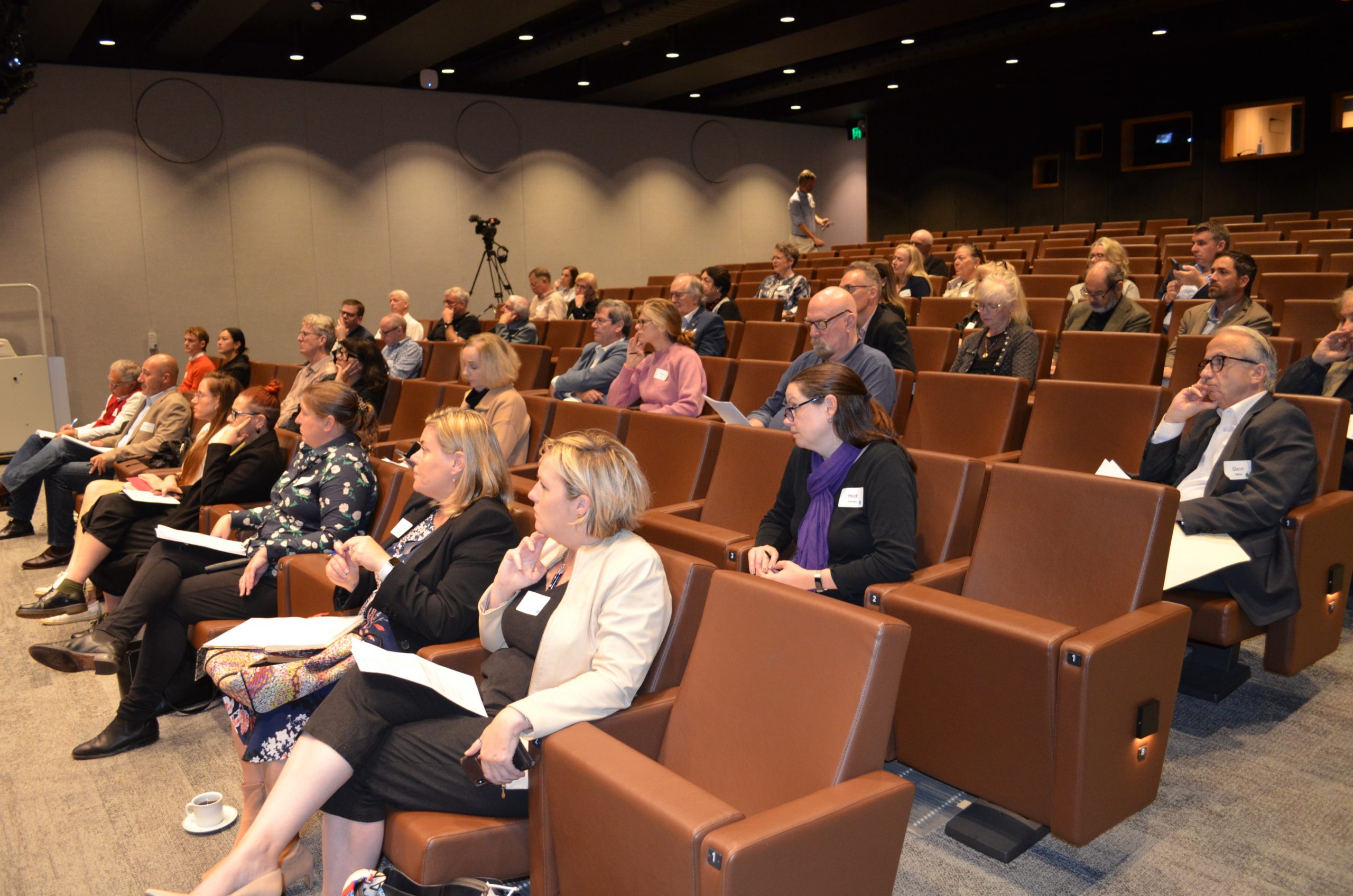-
Athens Democracy Forum, in association with
The New York TimesYour question for the workshop is “How can we reconnect people to their parliaments in order to produce more trust in public decisions?”
Read the Rapporteur’s Report here.
Event Speakers (videos)
- Prof. Anika Gauja - Associate Dean at the University of Sydney and Editor in Chief, Australian Journal of Political Science
- Geoff Gallop - Premier of Western Australia 2001-06
- Glenn Milne - Political commentator and Journalist
- Rod Simpson - Former Commissioner – Greater Sydney Commission, Voices of North Sydney organiser
- Lee Evans MP - Member Heathcote in the New South Wales Legislative Assembly
- The Hon. Jonathan O'Dea MP - Member for Davidson and Speaker of the NSW Legislative Assembly
Citizens' juries and assemblies
Citizens' assemblies and juries
Citizens’ Assemblies are a method for finding agreement on solutions to a problem. What makes them different is that they take a representative mix of people chosen by lottery and give them adequate time, information and support to consider an issue deeply before finding common ground on an answer.
Connect2Parliament
Building a Directly Representative Democracy
The purpose of the Connecting to Parliament project is to link a representative sample of constituents with their elected official in productive town hall conversations about the issues that are subject to parliamentary debate in Australia. The project seeks to involve more Australians in the democratic process, and to expand knowledge about the potential benefits and uses of deliberative democracy.
Pol.is
Input Crowd, Output Meaning
Polis is a real-time system for gathering, analyzing and understanding what large groups of people think in their own words, enabled by advanced statistics and machine learning.
Decide Madrid
Citizen participation portal of the Madrid City Council
Following years of decline in public confidence in local government and in the midst of austerity and corruption scandals in Spain, Madrid City Council designed and launched the Decide Madrid platform in 2015. The online platform is part of a new generation of open source civic technologies which can be used to engage the public in decision-making. Decide Madrid aims to ensure transparency of government proceedings in the city of Madrid and to widen public participation in Council decision-making and spending processes.
New Options for Parliamentary Committees
Options Paper produced by The newDemocracy Foundation
This paper introduces to Committee Chairs a new set of inquiry elements, made available to the NSW Parliament’s Committees, to address emerging challenges using deliberative processes.
These methods combine democratic lotteries that select a representative mix of everyday people with deliberative exercises that help them listen, weigh expert testimony, apply critical thinking, understand biases, have honest conversations, and find common ground.
Participatory Budgeting
Real Money, Real Power
Participatory budgeting (PB) is a democratic process in which community members decide how to spend part of a public budget. It gives people real power over real money.
PB started in Porto Alegre, Brazil, in 1989, as an anti-poverty measure that helped reduce child mortality by nearly 20%. Since then PB has spread to over 7,000 cities around the world, and has been used to decide budgets from states, counties, cities, housing authorities, schools, and other institutions.
Academic submissions
Commissioned for the 2017 Geelong Citizens' Jury
These academic submissions were commissioned academic submissions to stimulate and inform some of the options and ideas about how to improve local democracy that might not be compliant with Victoria’s local government legislative framework to support any aspirational recommendations.
The Swiss Model
A research note on the Swiss democracy
When we think about Swiss democracy, we usually think about Switzerland’s frequent use of referenda. This is an important feature to learn from, but it is part of a larger pattern of power-sharing. This R&D note describes three features of the Swiss government that make power-sharing possible.
Democracy Commissions
Do we need democracy commissions?
This is a research note authored by newDemocracy's research director, Lyn Carson. It asks the question: Should our electoral commissions become democracy commissions?
There are multiple potential solutions for ‘fixing’ the faulty system of representative government but who should be responsible for doing so? Who should have oversight of any changes to be made? There is no one with clear responsibility for addressing these flaws apparent in our democracy. Could our electoral commissions take on the task?

